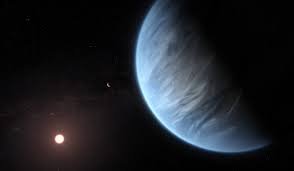NASA’s Historic Discovery of Six New Exoplanets
Introduction
NASA has made a significant breakthrough by discovering six new exoplanets. This monumental discovery has the potential to revolutionize our understanding of the universe and the existence of life beyond Earth. The detection of these exoplanets was made possible through advanced technology and years of meticulous research.
Discovery of Six New Exoplanets
The recent discovery of six new exoplanets by NASA is a landmark achievement in the field of astronomy. These exoplanets are located outside our solar system and orbit different stars. NASA’s powerful telescopes and sophisticated data analysis techniques played a crucial role in identifying these distant worlds.
Significance of the Discovery
The discovery of these exoplanets is not just about adding to the list of known celestial bodies; it opens up new avenues for research and exploration. Scientists can study the atmospheric composition, potential habitability, and other characteristics of these exoplanets. This can provide valuable insights into the formation and evolution of planetary systems.
Technological Advancements
The success of this discovery highlights the advancements in space exploration technology. NASA’s use of state-of-the-art telescopes, such as the Transiting Exoplanet Survey Satellite (TESS), has been instrumental in locating these exoplanets. These technologies have significantly enhanced our ability to detect and study distant worlds.
Potential for Future Research
The discovery of these exoplanets sets the stage for future research. Scientists will now focus on studying these planets in greater detail, including their atmospheres, potential water presence, and other signs of life. This discovery also encourages the development of more advanced telescopes and exploration missions.
Impact on Space Exploration
This discovery reaffirms NASA’s leading role in space exploration and its commitment to unraveling the mysteries of the universe. It also underscores the importance of continued investment in space research and technology. The knowledge gained from studying these exoplanets can contribute to our understanding of the cosmos and our place in it.

Why This News is Important
Advancing Our Understanding of the Universe
The discovery of six new exoplanets by NASA is a significant step forward in our quest to understand the universe. It provides new opportunities to study planetary systems beyond our own, offering insights into their formation, composition, and potential for supporting life.
Encouraging Scientific Research
This discovery is a testament to the importance of scientific research and technological innovation. It highlights the need for continued investment in space exploration to uncover the unknown aspects of the universe and inspire future generations of scientists and engineers.
Potential Implications for Life Beyond Earth
Finding new exoplanets raises intriguing questions about the possibility of life beyond Earth. By studying the atmospheres and surfaces of these planets, scientists can look for signs of habitability and even potential biosignatures, expanding our understanding of life’s potential existence elsewhere in the universe.
Historical Context:
Early Discoveries
NASA’s journey in exoplanet discovery began with the launch of the Kepler Space Telescope in 2009. Kepler’s mission was to find Earth-sized planets orbiting other stars, leading to the discovery of thousands of exoplanets and revolutionizing our understanding of planetary systems.
Technological Milestones
Advancements in technology, such as the development of the TESS and the upcoming James Webb Space Telescope, have significantly enhanced our ability to discover and study exoplanets. These telescopes provide higher resolution and more detailed data, allowing for more precise identification and analysis of distant worlds.
Impact on Astronomy
The discovery of exoplanets has transformed the field of astronomy, shifting the focus from our solar system to the broader universe. It has opened up new research areas and led to numerous scientific breakthroughs, contributing to our knowledge of the cosmos and our place within it.
Key Takeaways from NASA’s Historic Discovery of Six New Exoplanets
| Serial Number | Key Takeaway |
|---|---|
| 1 | NASA has discovered six new exoplanets located outside our solar system. |
| 2 | Advanced technology and data analysis techniques were crucial in this discovery. |
| 3 | The discovery opens up new avenues for studying planetary systems and potential habitability. |
| 4 | NASA’s use of telescopes like TESS played a significant role in identifying these exoplanets. |
| 5 | This discovery highlights the importance of continued investment in space exploration and research. |
Important FAQs for Students from this News
Q1: What are exoplanets?
A: Exoplanets are planets that orbit stars outside our solar system.
Q2: How did NASA discover the six new exoplanets?
A: NASA discovered the exoplanets using advanced telescopes like the Transiting Exoplanet Survey Satellite (TESS) and sophisticated data analysis techniques.
Q3: Why is the discovery of new exoplanets significant?
A: The discovery is significant because it expands our understanding of planetary systems, potential habitability, and the possibility of life beyond Earth.
Q4: What role did the TESS telescope play in this discovery?
A: The TESS telescope was instrumental in identifying the six new exoplanets by providing high-resolution data and detailed observations.
Q5: How can the discovery of exoplanets impact future space exploration?
A: This discovery sets the stage for future research, encouraging the development of more advanced telescopes and exploration missions to study exoplanets in greater detail.
Some Important Current Affairs Links

















